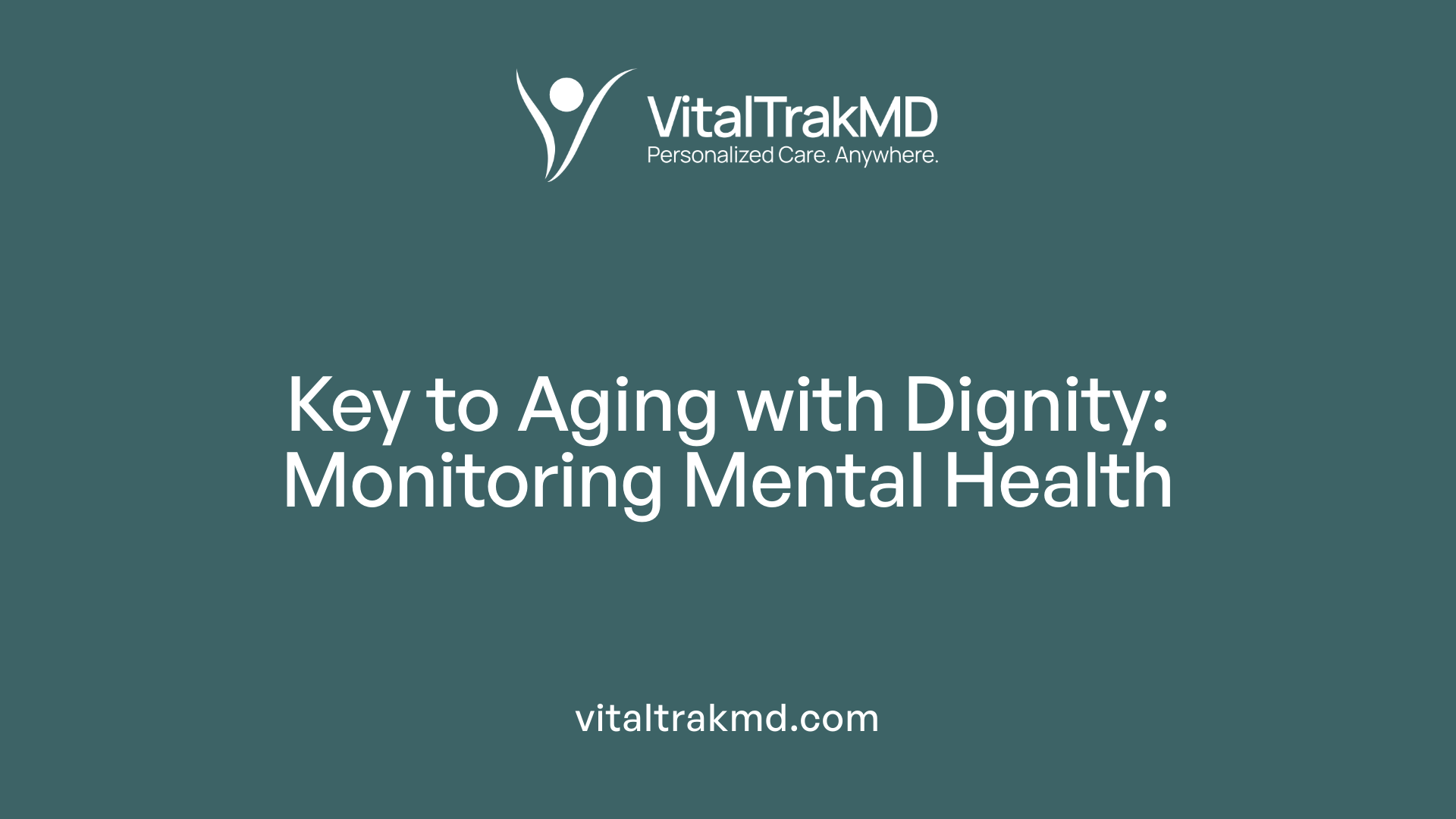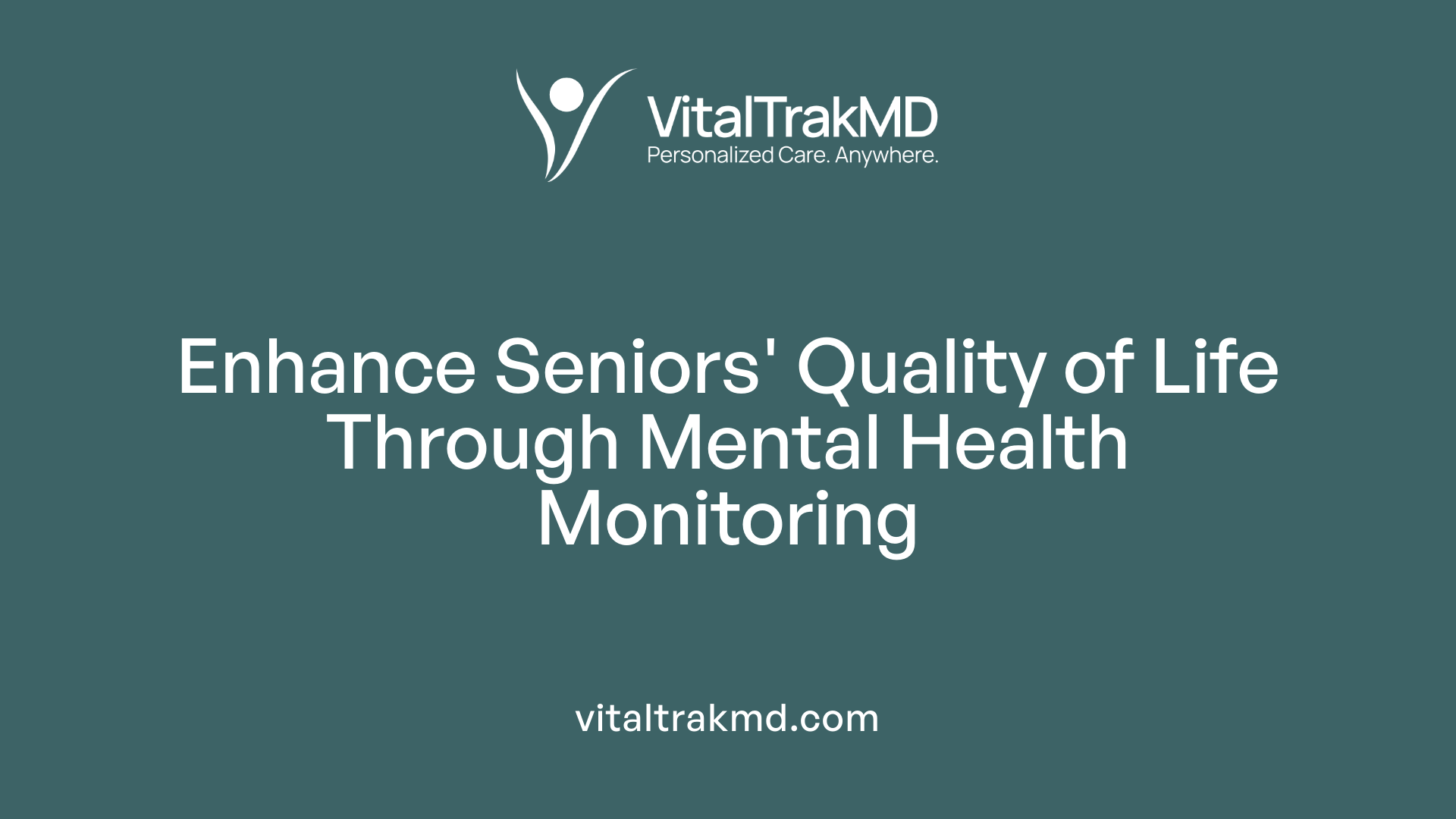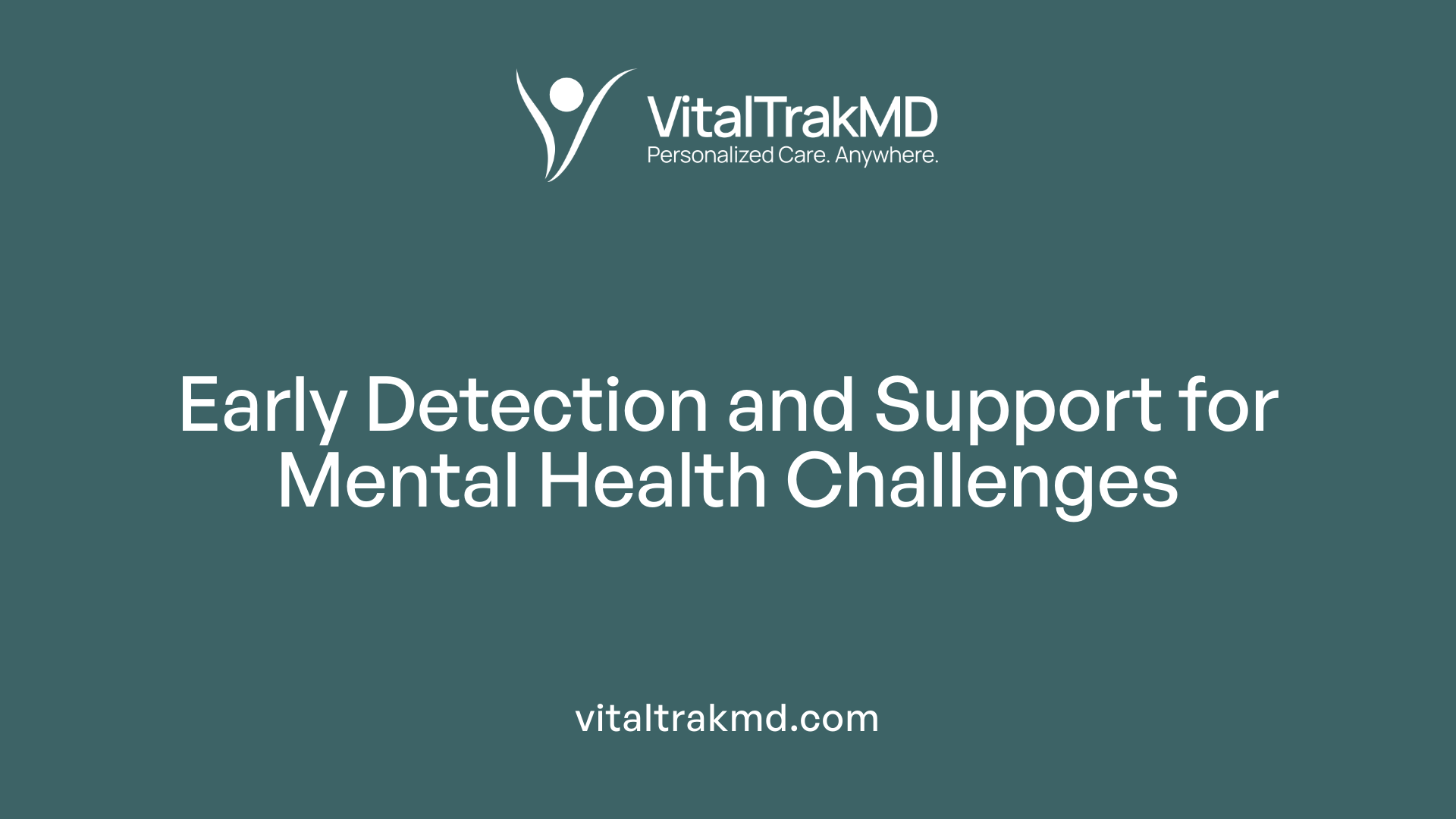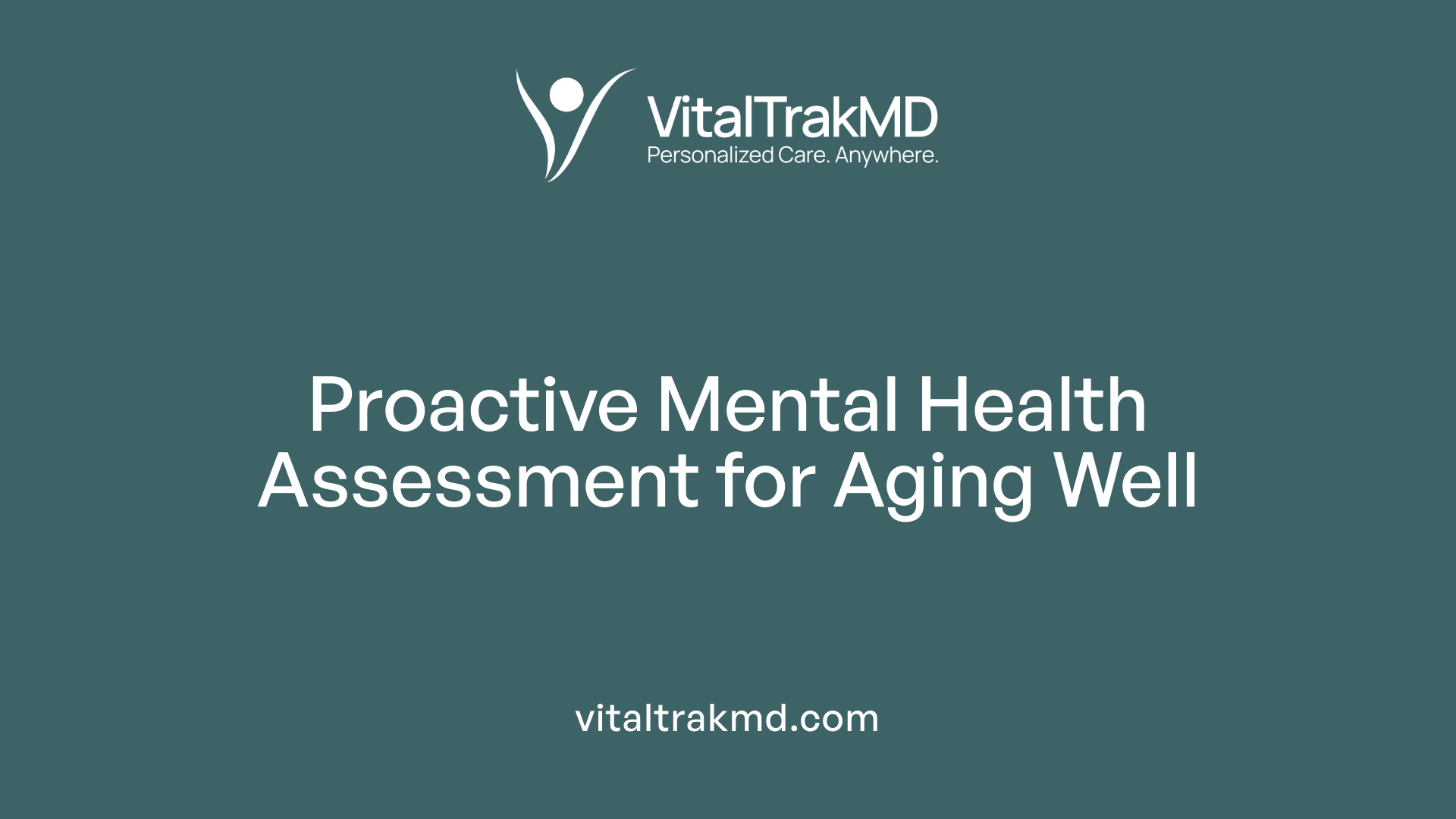The Importance of Mental Health Monitoring in Senior Wellness Programs

Understanding the Critical Role of Mental Health Monitoring in Senior Care
As the global population ages rapidly, the importance of integrating mental health monitoring into senior wellness programs becomes increasingly evident. Aging individuals face unique psychological, social, and biological challenges that can significantly impact their overall quality of life. This article explores why regular mental health assessments are essential, how they support overall well-being, and the strategies to effectively implement mental health monitoring to promote healthier, more resilient aging populations.
The Significance of Mental Health Monitoring in Senior Wellness

Why is monitoring mental health in senior wellness programs important?
Regular assessment of mental health is essential for senior well-being because it provides early detection of common issues such as depression, anxiety, and cognitive decline. These conditions often go unnoticed yet significantly impact quality of life, independence, and overall health.
By identifying problems early, healthcare providers can implement timely interventions that prevent further deterioration. For example, early recognition of depression can lead to counseling or medication that alleviates symptoms and improves mood.
Furthermore, mental health monitoring promotes emotional resilience and social participation. Seniors are encouraged to engage in supportive activities like group therapy, social clubs, or support groups, which help combat loneliness and isolation.
Integrating mental health checks with physical health care fosters a comprehensive approach that addresses both mind and body. This holistic strategy supports aging in place and helps maintain cognitive and functional independence.
Systematic monitoring also aids in distinguishing normal aging processes from serious neurodegenerative conditions like dementia. Recognizing subtle signs early on allows for tailored care and improved management of these disorders.
Overall, consistent mental health assessment enhances the effectiveness of senior wellness programs by fostering emotional well-being, encouraging social engagement, and reducing stigma associated with mental health issues. It enables older adults to age with dignity, resilience, and a positive outlook.
Supporting Overall Well-being: The Impact of Mental Health Monitoring

How does mental health monitoring support overall well-being in seniors?
Mental health monitoring plays a vital role in maintaining the overall well-being of older adults by allowing early detection of social, emotional, and psychological challenges. Conditions like depression, anxiety, loneliness, and stigma can significantly affect the quality of life, mobility, and cognitive function in seniors. By conducting regular assessments, healthcare providers can identify warning signs such as social withdrawal, mood changes, or confusion.
This proactive approach enables holistic evaluations that incorporate social determinants—factors like social isolation, environment, community involvement, and support networks. Recognizing these influences helps tailor interventions to meet individual needs. Personalized care plans may include psychotherapy, social engagement activities, and community programs designed to foster resilience and psychological health.
Moreover, continuous mental health monitoring facilitates the implementation of multidisciplinary interventions involving mental health professionals, social workers, and primary care providers. These coordinated efforts ensure comprehensive treatment addressing physical health, emotional resilience, and social connectivity.
Preventive strategies are crucial in avoiding the escalation of conditions such as depression, anxiety, and social isolation. Regular assessments can help initiate timely interventions, including counseling, community participation, or lifestyle modifications, that promote independence and active aging.
By fostering a supportive environment where emotional and social challenges are identified early, mental health monitoring ultimately enhances life satisfaction and well-being among older adults. It supports a comprehensive aging process where mental health is prioritized alongside physical health, resulting in improved quality of life and reduced healthcare burdens.
Addressing Common Mental Health Concerns in Older Adults
What are common mental health concerns among older adults?
Older adults frequently face mental health issues such as depression, anxiety, and cognitive decline, including conditions like dementia and Alzheimer’s disease. These disorders have significant impacts, leading to reduced quality of life, increased dependency, and physical health decline. Despite their prevalence, these conditions are often underdiagnosed and undertreated, which can delay essential interventions.
Factors contributing to mental health problems in this age group include social isolation, loneliness, grief from loss of loved ones, financial difficulties, and experiences of abuse or trauma. These elements can exacerbate mental health issues, making early recognition and treatment critical.
Addressing these conditions involves not only medical treatment but also community and social support systems. This comprehensive approach helps improve overall well-being, maintain independence, and reduce the risk of severe complications.
What factors contribute to mental health issues?
Social determinants such as loneliness, social isolation, and bereavement are major contributors to mental health problems in older adults. Lack of social connections increases risks of depression and cognitive deterioration.
Physical health complexities also play a role. Chronic illnesses, mobility impairments, and sensory losses often lead to decreased social engagement and increased emotional distress.
Additionally, adverse experiences like elder abuse or trauma further impact mental well-being, highlighting the importance of vigilant screening and support.
Why is early recognition and community support important?
Early detection of mental health issues allows timely intervention, which can significantly improve outcomes. Strategies include routine mental health screenings during health visits, community outreach programs, and education to raise awareness about symptoms.
Community support networks, such as social groups, senior centers, and peer support programs, serve as vital resources. They help reduce feelings of loneliness and promote social engagement.
Investing in programs that foster connection and provide mental health services within communities can help address the stigma surrounding mental disorders and ensure that older adults receive the care they need.
| Aspect | Details | Additional Notes |
|---|---|---|
| Common Conditions | Depression, anxiety, dementia, Alzheimer’s | Often underdiagnosed but highly treatable |
| Contributing Factors | Social isolation, bereavement, trauma, physical ill | Address social and medical aspects to improve outcomes |
| Importance of Intervention | Early recognition, community support, integrated care | Helps maintain independence and quality of life |
Understanding these aspects emphasizes the necessity of holistic and community-centered approaches for supporting mental health in aging populations.
The Integration of Mental Health Care into Senior Wellness Programs

How do integrated care models like the 4Ms improve behavioral health in older adults?
The 4Ms framework — What Matters, Medication, Mentation, and Mobility — plays a central role in creating age-friendly mental health services. This model promotes a comprehensive approach where health professionals assess and coordinate care around these four domains.
In mental health, focusing on what matters involves understanding each individual’s values, preferences, and life goals to personalize interventions. Addressing medication ensures that therapies are safe, effective, and tolerable, avoiding polypharmacy and adverse effects. Mentation prioritizes cognitive health, with early detection and management of dementia and depression. Mobility supports physical activity, which benefits mental well-being by reducing symptoms of depression and anxiety.
By integrating these elements, care teams can provide holistic support that improves mental health outcomes and overall quality of life.
What benefits does comprehensive, person-centered care bring?
Moving beyond disease-specific treatments, person-centered care emphasizes the individual’s unique needs, strengths, and social context. This approach encourages active participation in care planning, boosting emotional resilience and motivation.
In practice, such care leads to higher satisfaction, better adherence to treatment, and reduced behavioral disturbances. For example, nonpharmacological interventions like social engagement activities, cognitive exercises, and physical wellness programs are tailored to individual preferences, promoting stronger social connections and mental engagement.
This approach also reduces reliance on medications, decreasing side effects and potential interactions, and fostering a more natural, engaging aging process.
How does this care model reduce reliance on medications and foster therapy diversity?
Integrated models aim to diminish overdependence on pharmacological treatments, especially for behavioral issues like agitation or sleep disturbances common in dementia. By emphasizing non-drug interventions — such as cognitive therapy, behavioral strategies, and social activities — staff can better manage symptoms.
Therapy options include cognitive-behavioral therapy (CBT), art therapy, music therapy, and social support groups, providing diverse avenues for emotional and mental support. These alternatives are especially important for individuals with comorbid physical health issues or medication sensitivities.
This diversification of interventions not only enhances effectiveness but also respects the complexity of aging, encouraging a balanced, personalized approach to mental wellness.
| Benefit | Description | Example |
|---|---|---|
| Enhanced Well-Being | Addresses mental, emotional, and social needs | Individualized activity plans |
| Reduced Medication Dependence | Limits side effects and interactions | Use of therapy vs. medication |
| Diverse Interventions | Offers tailored mental health support | Art, music, cognitive therapies |
| Improved Care Outcomes | Promotes holistic health | Higher mood, engagement, reduced hospitalizations |
Fostering an integrated, person-centered mental health care environment not only improves individual outcomes but also strengthens the overall quality of senior care, making aging a more supported and positive experience.
Harnessing Technology to Enhance Remote Mental Health Monitoring
How can technology aid in remote mental health monitoring for seniors?
Technology offers powerful solutions to improve mental health care for older adults, especially when in-person visits are challenging. Telehealth services enable virtual consultations with mental health professionals, allowing seniors to access therapy and support groups from the comfort of their homes. This not only helps reduce feelings of loneliness but also fosters continuous engagement with mental health care.
Wearable devices and home sensors track behavioral and physiological indicators such as activity levels, sleep patterns, and mood changes. These real-time data points enable healthcare providers to identify early signs of mental health issues, facilitating timely interventions before problems escalate. Mobile health applications and chatbots provide personalized support, delivering relaxation exercises, reminders for medication adherence, and opportunities for social interaction tailored to individual needs.
Expanding access to these technologies helps overcome mobility barriers and geographical limitations, ensuring more seniors receive consistent mental health support. Moreover, privacy features and user-friendly interfaces encourage greater acceptance and comfort with digital tools. Overall, integrating telehealth, wearables, and mobile apps creates a comprehensive remote monitoring system that enhances early detection, ongoing management, and overall mental well-being for older adults.
Recognizing Signs and Implementing Strategies for Mental Health Challenges

What are some signs indicating mental health challenges in seniors?
Identifying mental health issues in older adults requires attentive observation of both emotional and physical changes. Common signs include noticeable shifts in mood, such as ongoing sadness, feelings of hopelessness, or despair that persist over time. Seniors may withdraw from social interactions, lose interest in activities they once enjoyed, or become isolated.
Confusion, disorientation, or hallucinations often appear, which may initially be mistaken for dementia but could signal psychiatric conditions like depression or psychosis. Sleep disturbances, such as trouble falling asleep, staying asleep, or early morning awakening, are frequent emotional indicators. Changes in appetite—either loss of interest in food or overeating—can also mark mental health issues.
Physical symptoms like unexplained pain, muscle tension, or physical discomfort often accompany emotional disturbances, further complicating the identification process. Emotional signs such as increased worry, irritability, anger, obsessive behaviors, or substance misuse are also common indicators.
Offensive signs include social isolation, neglect of personal hygiene, and expressions of thoughts about death or suicide. Recognizing these signals early is crucial. Prompt assessment and intervention can prevent worsening conditions and improve quality of life. Caregivers and healthcare providers should remain vigilant and responsive to these changes, ensuring that seniors receive the support and treatment they need.
Developing Effective Strategies for Mental Health Monitoring

What strategies are effective for mental health monitoring in older adults?
Monitoring mental health in seniors requires a comprehensive and coordinated approach. Effective strategies include routine screening with validated tools such as the Patient Health Questionnaire-9 (PHQ-9), Geriatric Depression Scale (GDS), Mini-Mental State Examination (MMSE), and Montreal Cognitive Assessment (MoCA). These instruments help detect early signs of depression, anxiety, and cognitive decline.
Implementing community-based programs and integrated care models is essential. These approaches facilitate collaboration among healthcare providers, family members, and community services to address social factors like loneliness, social isolation, and abuse that heavily impact mental health.
Ongoing and tailored assessments enable providers to adapt interventions to individual needs. Evidence-based treatments—such as psychotherapy (including cognitive-behavioral therapy), behavioral activation, and appropriate medication—are prioritized based on safety and tolerability considerations related to aging.
Supporting caregivers through education and training enhances early detection and ongoing support. Promoting positive aging practices, social engagement, and environments conducive to mental wellness are vital components.
Continuous evaluation of treatment effectiveness, coupled with supportive policies and efforts to reduce stigma and improve access, help ensure optimal mental health monitoring. These strategies aim not only to improve quality of life but also to foster resilience and independence among older adults.
Fostering a Future of Resilient and Mentally Healthy Seniors
Promoting mental health through systematic monitoring, integrated care, and innovative technology is essential for supporting aging populations. Addressing social determinants, reducing stigma, and recognizing early warning signs can lead to improved quality of life, greater independence, and a more positive perception of aging. As the field advances, combining personalized care strategies with community and policy support will be crucial to ensure that mental well-being remains a priority in senior care, ultimately fostering a society that values and nurtures mental resilience in later life.
References
- Mental health care for older adults: recent advances and new ...
- The Essential Role of Mental Health in Senior Care
- The Importance Of Health And Wellness Programs In Senior Living
- Maintaining Wellness for Older Adults and Caregivers
- Aging Adults' Preferences for Wellness Program Activities and ...
- How Does Mental Health Affect Seniors? | Senior Living Community
- Wellness Checks and Routine Health Monitoring in Senior Living
- [PDF] Supporting the Mental Health Needs of Older Adults | SAMHSA
Recent articles
Want to Feel Better and Live Healthier?
Join hundreds of patients taking control of their health with personalized care that fits their life – not the other way around.
Rated 4.8/5 by 32+ customers







